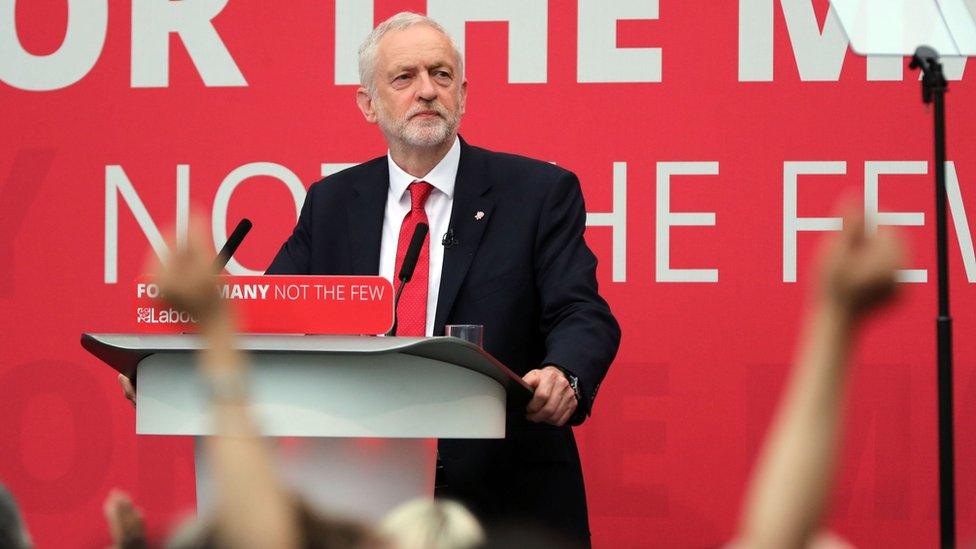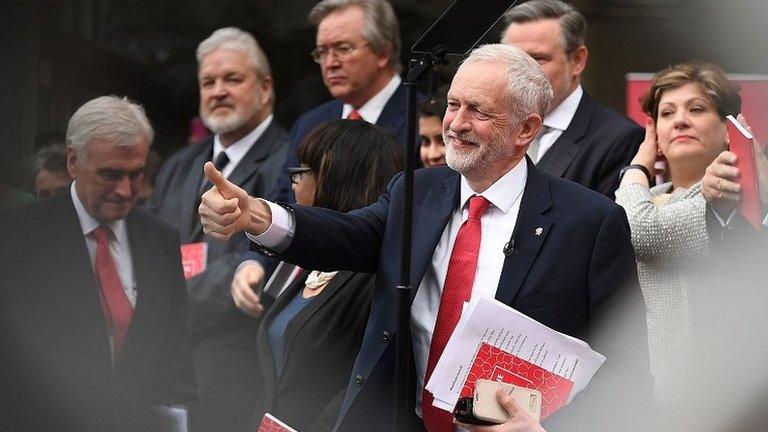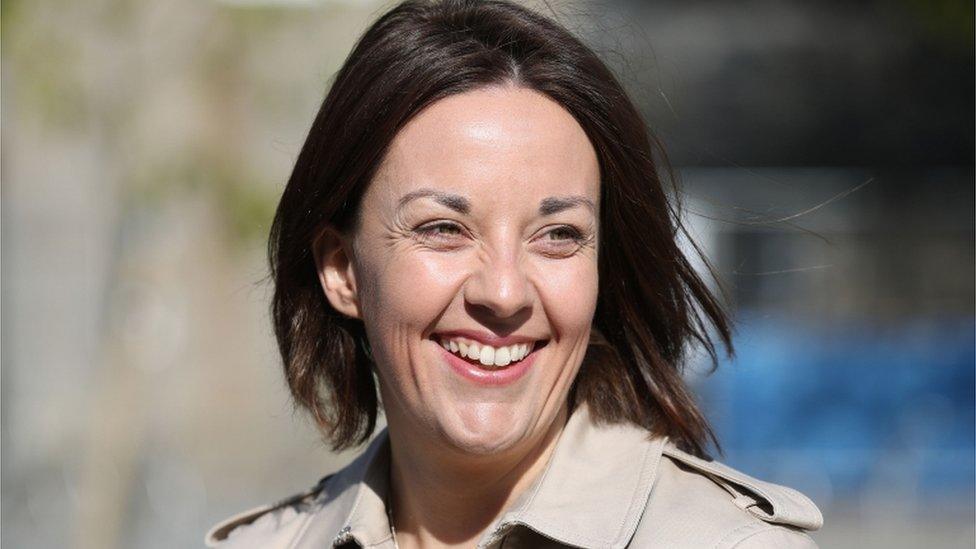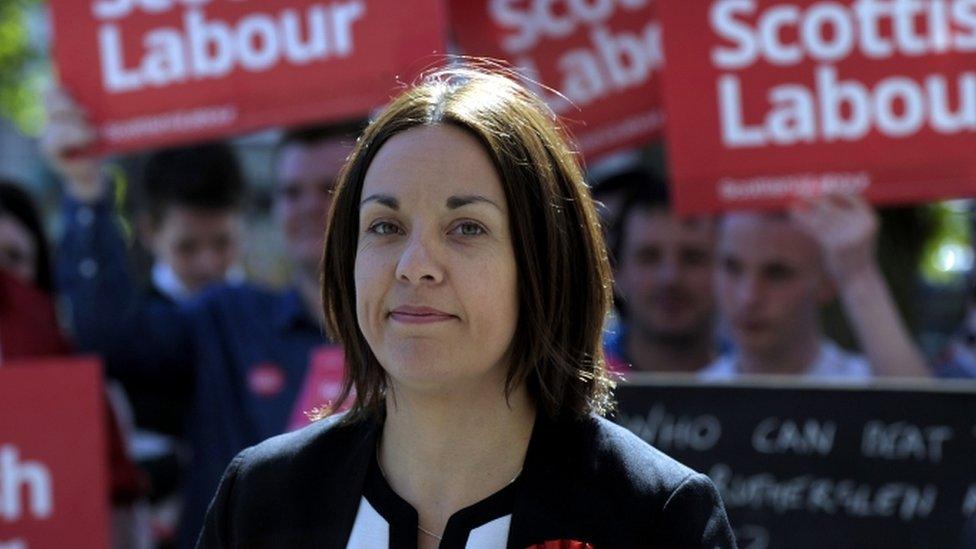Grinning Corbyn talks up 'real' Labour manifesto
- Published

Labour leader Jeremy Corbyn launched his party's general election manifesto
The media questions at Labour's manifesto launch were a valuable source of innocent merriment, designed as ever to challenge and contend.
One journalist, from a paper generally seen as supporting Labour, opened by suggesting that the party's policies, as leaked a week back, had proved relatively popular with the focus groups, before whom all politicians bow.
On stage, Jeremy Corbyn beamed, beatifically. This, you could see him thinking, was the stuff to give them. That'll teach my critics.
However, his interlocutor wasn't quite finished. The snag, he said, was that those same members of the public didn't seem to favour Mr Corbyn as leader and PM in waiting.
During an election, politicians are programmed to smile. But it has to be said that, with this addendum, Mr Corbyn's grin faded a mite; only fractionally but perceptibly.
The content you will have read. Either today or, as Mr Corbyn drily noted, in the leaked version. Some £48bn of extra spending, funded by tax on companies and higher earners. Public ownership of rail and mail. Scrapping tuition fees south of the border.
Voters will choose
A Constitutional Convention for the UK, to build upon Scottish devolution. A Scottish investment bank. Scrapping the so-called "rape clause" in tax credits, lately highly contentious in Scotland. Supporting the North Sea oil and gas industry. Renewing Trident.
Labour describes the package as "radical and responsible". Focusing upon the many not the few. It is perhaps instructive to consider also the response from political opponents. Which varies, according to taste and partisan hue.
The Tories say the package is unaffordable and would wreck the economy. By contrast, the SNP tend to highlight areas - like ending tuition fees - where they say Labour are aping ideas from the Scottish government.
Both parties, though, coalesce around a comment also evinced by the Liberal Democrats. To the effect that, regardless of content, Mr Corbyn will not win and cannot deliver.
As for Jeremy Corbyn, he argued at the launch that opinion was changing, moving towards his party. The voters, of course, will choose.
- Published16 May 2017

- Published13 May 2017

- Published16 May 2017

- Published11 May 2017
